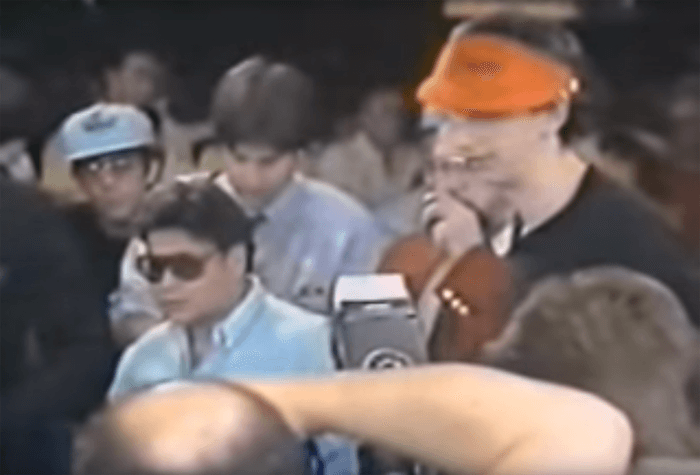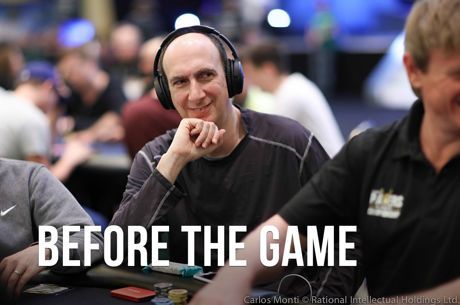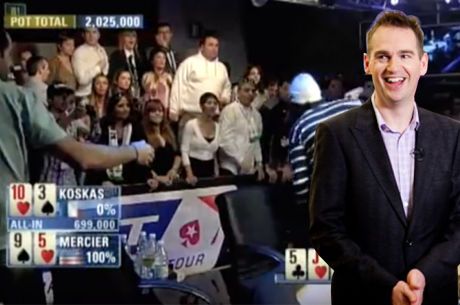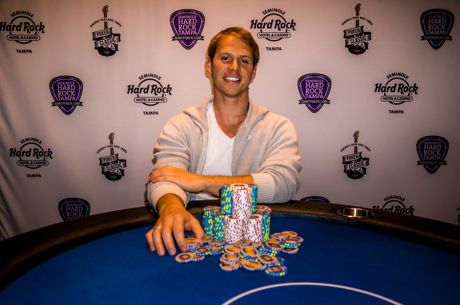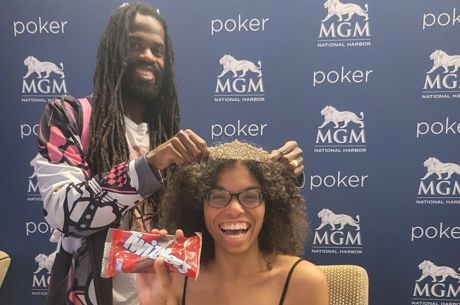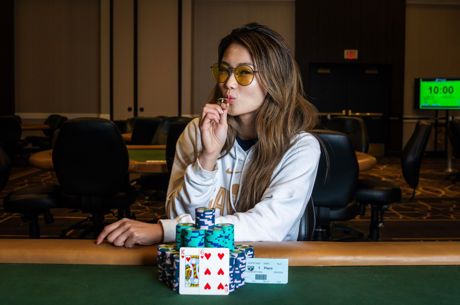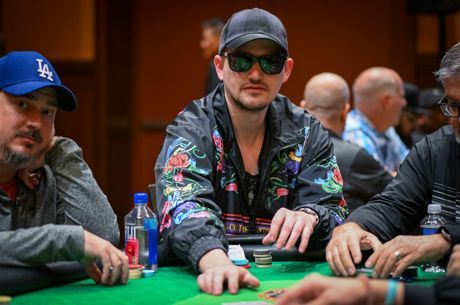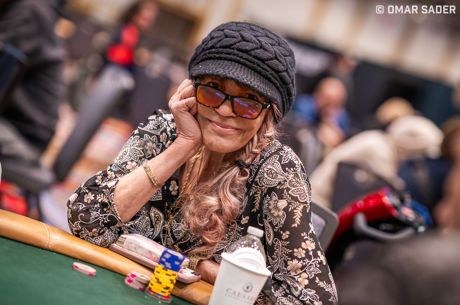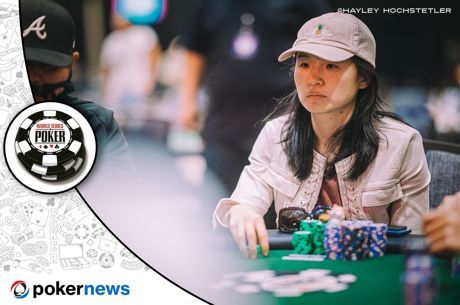Poker Moments: Erik Seidel Looks Back on Johnny Chan and the Eye to the Sky
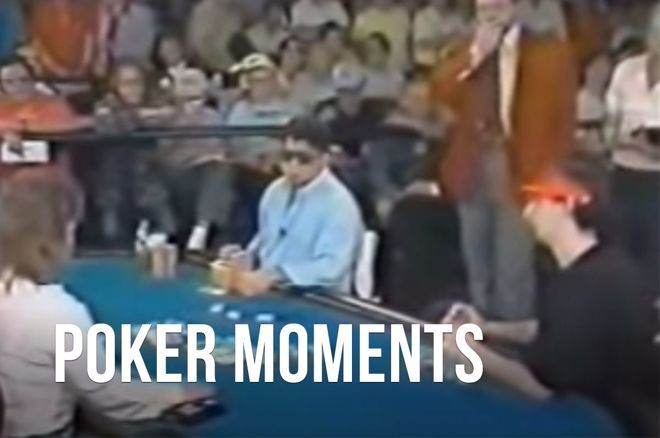
Table Of Contents
Mention the World Series of Poker to any movie fan, and they��ll think of the moment in Rounders, the 1998 film starring Matt Damon and Ed Norton. Damon��s character, Mike McDermott, is watching old footage of Johnny Chan and Erik Seidel in the 1988 WSOP Main Event.
In the scene, Chan famously looks up to the ceiling of the Binion��s Horseshoe and to the commentator��s hushed tones, his ��Eye to the Sky�� moment precipitates the final all-in and call of the tournament.
Chan got the better of Seidel to win back-to-back World Series Main Events. But what was the iconic poker moment like for Seidel, the man who lost the 1988 WSOP Main Event but who would one day surpass ��Johnny Chan, the Master�� and become one of the greatest if not the greatest of players to exist in multiple eras of no limit hold��em? And how did it come to be?
Getting In
You can find out how the lifelong New Yorker came to be in Vegas for the WSOP in our Before the Game article series. But what events led up to that second-place finish that would etch him in poker history?
��I played nine satellites and I lost all of them,�� says Seidel. ��I lost a lot of confidence. So I ended up taking a bunch of partners to play in the tournament.��
Selling action was already a big part of entering tournaments such as the World Series Main Event, and Las Vegas was abuzz with players trading pieces of each other. A former Amex option trader, Seidel stuck to New York buyers.
��I played nine satellites and I lost all of them.��
��All the people that were betting on me were taking a big chance. It wasn��t as if I had played before. It was nice that there were a few people who had confidence - they were all players from New York.��
How much did Seidel have of his own action in his breakthrough tournament? Maybe not as much as you might have presumed.
��It would have been crazy to pay $10,000 on my own and I had about 30% of myself. I didn��t sell at a premium, either. People could just take a straight piece.��
Aggression Pays Off
Seidel was in, one of 167 entrants to the 1988 Main Event. Right from the start, he found his game was working out well.
��The first few days it was interesting to see that I was doing some things that other people weren��t doing. I remember finding a lot of spots where bluffing was effective.��
Seidel��s confidence was returning. Three-betting was a particular area he felt like he could exploit.
��It was easier to put people on a hand back then - it was a very different time."
��People who were three-betting had a big hand. Three-betting on a bluff was very unusual. It was interesting to be playing with such a variety of players and trying to figure all of them out, what they were doing, whether they were aggressive.��
There can be no doubt that poker has changed immeasurably over the years. But Seidel has changed with it. He hasn��t dominated one era like Chan, Ivey, Holz or Colman. Instead, he sits above all of them in the all-time money list.
��It was easier to put people on a hand back then - it was a very different time. Aggressiveness was really rewarded because people were used to playing a certain way.��
Although players from the United Kingdom and Ireland took part in the World Series, it was still a largely American festival, with Americans making up the majority of players.
��It took a little while before that changed. Now you have people from every part of the globe. If someone has access to a computer and is willing to work hard if they have the right brain and resources, somebody from anywhere can be a hugely successful poker player.��
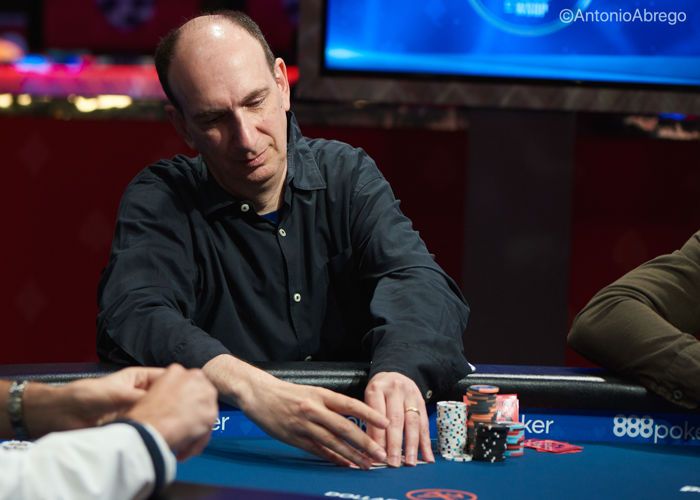
Navigating Through the Field
Having got off to a good start, Seidel made his way through Day 1, Day 2 and Day 3 under the radar. The previous year��s champion, Johnny Chan, was still involved. By the time the final table came around, all the talk was of ��The Orient Express.��
��I didn��t expect to have any kind of clash with Chan. Obviously, I was very aware of him as we were getting closer. At that time, he had a particularly good record, but there were really great experienced players at the final table too like T.J. Cloutier and Humberto Brenes.��
Brenes, in particular, impressed Seidel. The man who produces a small shark toy at the table as he prepares to play his opponents in a hand brought a lot of entertainment to the 1988 Main Event.
��I didn��t expect to have any kind of clash with Chan."
��He��s always been a very friendly guy and a really fun person to be around. He has a certain enthusiasm for poker that I really love. He always puts a smile on my face when I see him. He loves the game... and he��s got a lot of skills.��
While Brenes would entertain, he would also fall in fourth place. T.J. Cloutier had already exited a place earlier, and with Ron Graham busting in third, the stage was set for a heads-up showdown between one man with all the experience and Seidel, the rookie.
��I was really, really tired and it was very hard for me to be as focused as I should have been at the time. I was thrown into that experience having never even seen the final table.��
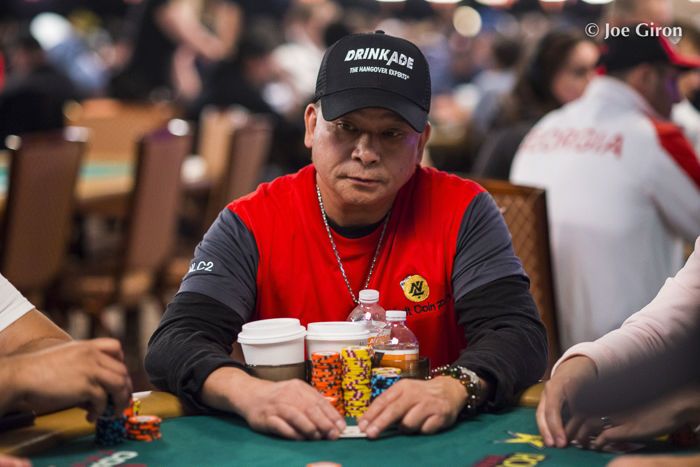
Heads Up with Johnny Chan
Seidel hadn��t only never played heads-up at the World Series of Poker. He��d never played heads-up.
��It was an entirely different game. We were playing 11-handed in New York and when you��re playing 10 or 11-handed, there are hands that people overplay. They get impatient and play too many hands, so in a way, I like those games.��
While his game worked well for him through the rest of the event, he admits he wasn't adequately prepared for the match with Chan.
��I didn��t bring my A-Game, and even my A-Game wasn��t nearly as good as his. Chan was a great player and I was an unpolished player trying to figure things out.��
If Chan was on top of his game, Seidel identifies the weaknesses he was guilty of at the time.
��I didn��t bring my A-Game, and even my A-Game wasn��t nearly as good as his."
��I remember I wasn��t really varying my betting. I was trying to keep all my betting exactly the same and I didn��t really have a sense of what I should be playing. Heads-up is an entirely different animal and I was pretty lost trying to figure it out.��
Seidel lost perspective on what he should be doing right when he needed that quality the most. He now says he thinks that he ��played the hand badly�� when talk turns to the defining, final moment of the tournament. Johnny Chan flopped a straight as Seidel hit his top pair queen.
��Obviously to have the situation come up was perfect for him, to flop a straight, but I think I can get away from that hand without losing my whole stack. I should have seen that any aggression on his part indicated that my queen with a seven kicker wasn��t good.��
Seidel couldn��t get away from the hand. On the river, Chan��s ��eye to the sky�� precipitated an all-in from Seidel and a quick, cold, winning call from Chan. Seidel had lost all of his chips. It was over. You can relive the moment in the following clip:
Processing the "Loss"
��Right afterwards, we all went out to dinner. I was surrounded by a lot of New York players, but even though there were probably 20 people there, I felt very alone and isolated. I didn��t really think that anybody could understand the way I felt.��
There hadn��t been too many players who��d lost WSOP Main Events at that point in poker history. It would take Seidel some time to make sense of it all.
��The first time you take a big loss like that, you��re not used to processing it. It took me a few days. It was a very difficult loss for me, but I also remember the feeling of ��Holy shit, I can��t believe I did this.��
"At the time, my wife was pregnant, so the money was a really big deal for us."
Coming back from that disappointment was key in Seidel��s development as a player. He focused on what it meant to him and his young family.
��I was elated to win that much money. At the time, my wife was pregnant, so the money was a really big deal for us. We didn��t have a whole lot of financial stability - I was just a gambler - so it was huge for us and gave us a lot of breathing room.��
It wasn��t just Seidel who profited from his win, of course. Plenty of New York players had enjoyed a profitable series thanks to him.
��It was really fun to make my friends a bunch of money. Almost all my friends had a piece and that was an incredible feeling to reward everyone for their confidence in me.��
While many were happy with his result, Seidel got his share of needles for that final play, and one in particular stands out in memory.
��I remember being in line the very next year, signing up for the World Series Main Event. Puggy Pearson was in front of me. He looked at me and said: ��That hand you played, that��s about the worst hand I��ve ever seen.�� I knew Puggy - he was one of the people who got me started playing. It was awfully funny.��
Reflecting on Rounders
Seidel and Chan had played out a heads-up clash for the ages, but it would not be the start of a rivalry.
��We��ve only played together since then a little bit. He doesn��t play a ton and when he has played in the last few years, I haven��t run into him that often. We were always on friendly terms, but we weren��t hanging out and going to the movies or anything.��
They did, however, make it into the movies when that infamous hand was further popularized in Rounders, which Seidel admits he hasn��t seen since it came out in the cinema. His memories of first hearing about it differed from his feelings when he saw it on the big screen.
��When I first saw the script, I remember being a bit offended by it. But it only took me a few minutes to see that they were right, I was the fish! I think it was accurately portrayed.��
"I was the fish! I think it was accurately portrayed.��
Just being part of a major Hollywood movie is exciting. Seidel thought it would be good for his career, too.
��It was a major poker movie and John Dahl is a great director. To be in a film that he directed was pretty cool. I liked the movie, I thought it was well done.��
Over 30 years after it happened, Seidel��s memories of the 1988 clash and Johnny Chan��s ��eye to the sky�� are still positive.
��It was a really exciting four days. Even though I lost, it still remains one of my favourite tournaments.��
Many poker fans and Rounders fans the world over also look fondly on that finale. For Johnny Chan, the moment would capture his poker life in one look to the ceiling. But Erik Seidel would define his poker career by eclipsing the memory of that hand, that tournament, and even that era.
That, perhaps, is the greatest victory any poker player could ever wish for - to outlast the memory of their greatest loss.
